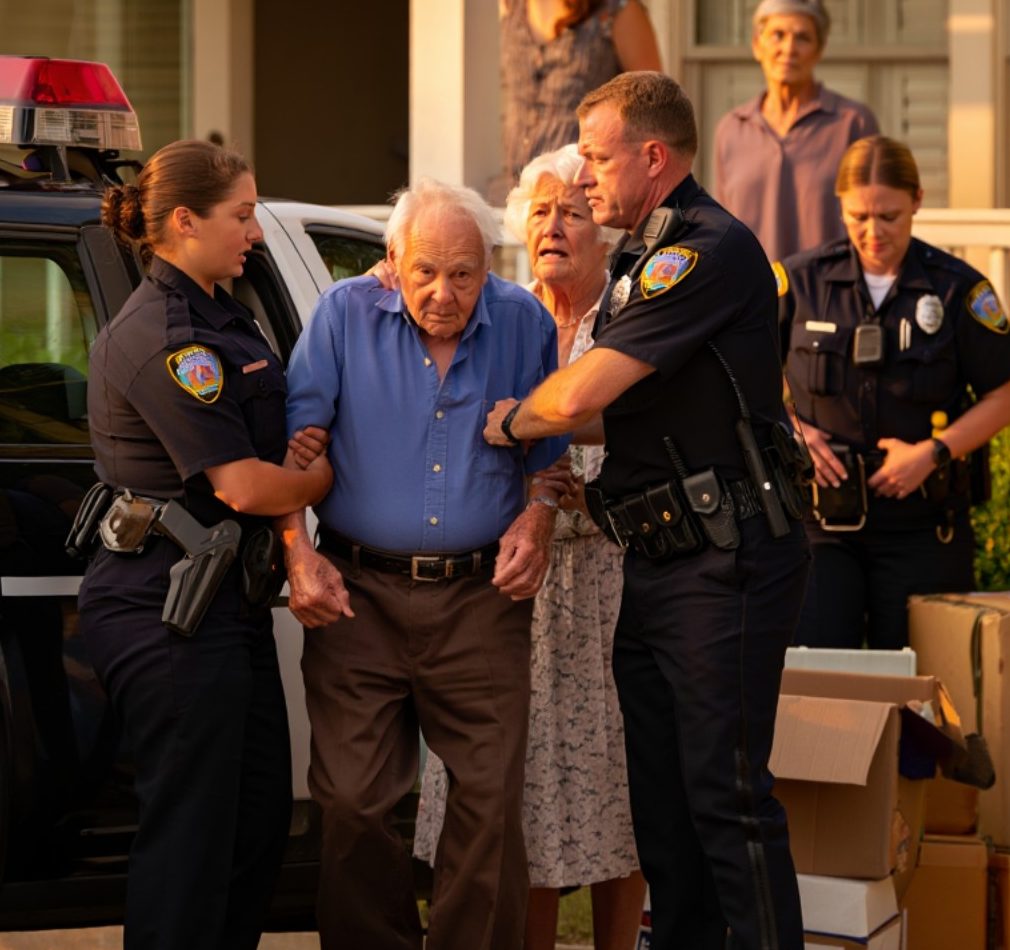Three weeks. That was how long it had been since the betrayal—since my parents signed the deed over to my sister Isabel and her husband, Marcus. The house I had been bleeding my salary into for five long years, the one I’d repaired, repainted, even landscaped with my own hands.
They hadn’t even looked me in the eye when they did it.
And then, an invitation appeared. A “family dinner.” Two words that already felt like a loaded gun on the table.
The four of us sat in stiff silence, the air thick with tension and boiled cabbage. My fork scraped against porcelain with surgical precision, every clink underlining the words I knew were waiting to be sprung.
My mother broke first. “Clara, as you know, Isabel and Marcus… well, they need their own space now.”
My father jumped in too quickly, too eager to control the spin. “What your mother means is—we can’t stay here with them anymore.”
I didn’t answer. I let the silence hang, deliberate, letting them stew in it.
Mom’s smile stretched thin across her face, brittle as spun glass. “So… we’ve decided we’ll move into your vacation home.”
I set my fork down gently, like laying a blade on the table. “Just so I understand: you gave Isabel the home I’ve been paying for, and now you want my cottage too?”
My father’s expression curdled. “Clara, don’t be difficult.”
And then Isabel, predictably smug, piped up like it had been rehearsed. “It’s not like you’re ever there anyway.”
Something inside me cracked—not like glass shattering, but like a door slamming shut. Cold. Final.
“That cottage is mine,” I said evenly. “I bought it. Alone. Every cent earned, every sacrifice made, was mine.”
Mom’s face blanched, as though my refusal was more obscene than theft itself. “You’re not actually saying no… are you?”
I didn’t flinch. “That’s exactly what I’m saying. No.”
The air turned sharp, brittle. Isabel slammed her hand against the table like a gavel. “You’re so greedy! You’re bitter because Mom and Dad love me more!”
I met her glare, steady and unblinking. “If love is what this is, then let them move in with you. You’ve got four bedrooms, don’t you?”
That shut her mouth.
I grabbed my purse, rose without haste, and left them stewing in the silence they had brewed themselves.
For two blessed weeks, there was quiet. No calls. No texts. My phone lit up daily with their names, but I let the notifications rot in the corner of the screen. At night, I sat on my porch, watching the sky bleed into stars, tasting freedom with every sip of tea.
Until it happened.
At work, my phone buzzed. A notification from my security system: Motion detected—front porch.
I swiped it open. The image froze me. My parents, standing shoulder to shoulder in the grainy feed, staring straight at the camera. No attempt to hide. No shame. Just presence. Behind them, Isabel’s SUV was parked in my driveway.
A second alert pinged—Motion detected—back entrance.
Marcus. Tugging at the locked door with a crowbar.
My pulse spiked. I felt the room tilt around me as coworkers laughed obliviously in the background.
I called the police. My voice was ice as I gave the address. Trespassing. Attempted break-in. The dispatcher said help was on the way, but my chest ached with the certainty that something deeper had shifted.
That night, when I drove to the cottage, blue-and-red lights pulsed across the walls. A patrol car idled in the gravel driveway. My parents and Isabel were gone.
The officer on scene handed me a slip. “Filed the report. Family, huh? That always makes it messy.” His eyes flicked over me, not unkind, but edged with the pity of someone who’d seen it too often.
Inside, nothing was stolen. Nothing broken. But the air was wrong. A coffee mug sat overturned on the counter. A cushion had been moved on the sofa. Subtle things, but I knew this space as an extension of my body, and it had been violated.
The cottage no longer felt like refuge. It felt like a battleground.
The following weekend, I called a locksmith, had the locks changed, added new cameras. Reinforced windows. But I also did something else: I called my lawyer.
“Clara,” he said after I explained everything, “if they’ve attempted unlawful entry, we have grounds for a restraining order. And about the first house—the one deeded to Isabel? That may not be airtight. If you’ve been paying the mortgage, we can challenge ownership.”
Hope flickered—sharp, dangerous hope.
By Monday, the papers were filed. A legal gauntlet thrown into the arena where family love had already bled out.
The calls grew frantic. Isabel leaving voicemails dripping with venom: “You’ll regret this. You’re tearing the family apart.”
My mother’s tone swung from pleading to guilt-laden. “We raised you, Clara. How could you turn against us?”
And my father, his voice like gravel, snarling through the line: “You think you can win this? We’ll take everything.”
But I had already lost them the moment they betrayed me. What was left to lose now?
Two weeks later, I drove to the cottage after work. Twilight hung heavy, the air damp with pine. I unlocked the door, stepped inside, and froze.
A photo sat on the kitchen table. One from years ago—me and Isabel as children, hair tangled, grinning in the summer sun. Across the bottom, in Isabel’s unmistakable handwriting, were four words scrawled in red ink:
This isn’t yours either.
The phone in my pocket buzzed again—another motion alert.
I didn’t look. I didn’t need to.
Because I knew now.
This wasn’t just about houses or cottages. This was war.
